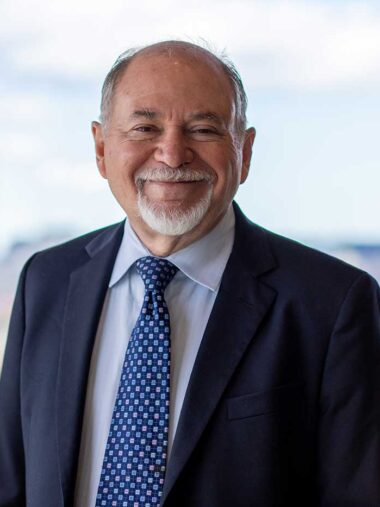
Mitch Wand
- Khoury Professor Emeritus
- Associate Dean for Graduate Studies 1985-1991
One of the best-known features of the computer science curriculum at Khoury College is its approach to teaching programming languages, specifically its focus on functional languages. This is due in no small part to Mitchell Wand, who has been a proponent of these languages since the 1970s, even co-authoring (with Dan Friedman) Essentials of Programming Languages, one of the leading texts in the field.
Wand’s research in programming languages, specifically the mathematical theory of programming languages, began in the early 1970s when he was a graduate student at the Massachusetts Institute of Technology. When Wand joined Northeastern’s faculty in 1985, he already had many contacts in the field and became instrumental in recruiting faculty that would eventually comprise Khoury’s premier research group in programming languages.
Wand’s own research focused on developing functional languages, which allow programmers to use mathematical functions and precise semantics to give confidence that a program produces the correct result. “By using those languages, we can more effectively communicate to the students the principles that they should be using, even if they are programming in other languages.” Over time, as students have graduated and moved on to other institutions, they’ve continued using and teaching this approach, creating ripples that spread the idea well beyond Khoury.
In addition to his work in programming languages, Wand was also instrumental in launching the Khoury graduate program. In his role as Associate Dean for Graduate Studies and Research from 1985 to 1991, Wand’s first task was to get the PhD program approved, which he was able to accomplish in just one year.
The master’s degree program also needed a reset as it had been designed as an evening program for students coming from working in industry. When industry took a financial dip and stopped funding master’s students, Wand oversaw the program’s adaptation to accommodate the influx of interested international students. This included the approval of a master’s level co-op, which proved to be a tremendous draw because it allowed international students the opportunity to work in the U.S.
I think one of the things that’s most distinctive about Khoury is our resilience, flexibility, and ability to evolve to a changing environment. It’s a wide, wonderful world out there, and we aim to contribute to it and be an essential part of it
Under Wand’s leadership, the graduate program continued to adapt and change with the times. It grew beyond the confines of the Boston campus into a global network of campuses, providing opportunities for students all over the world to receive a Khoury College education. Additionally, Wand oversaw a two-year effort to make the computer science courses available online, where they can be accessed by an even broader group of students.
In 2017, Wand retired from full-time faculty and now teaches software engineering part time. He feels that Khoury College has continued to be at the forefront of this rapidly changing industry. “I think one of the things that’s most distinctive about Khoury is our resilience, flexibility, and ability to evolve to a changing environment,” said Wand. “It’s a wide, wonderful world out there, and we aim to contribute to it and be an essential part of it.”